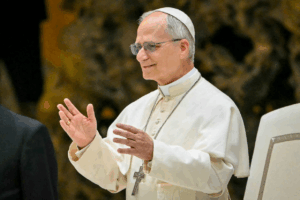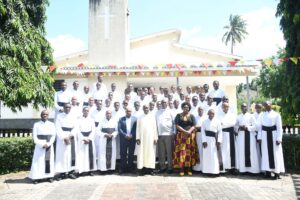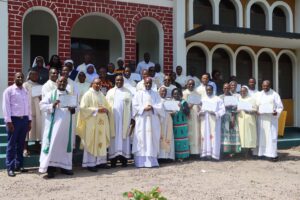TANZANIA: TEC Bishops, Christian Community Leaders meet President Magufuli
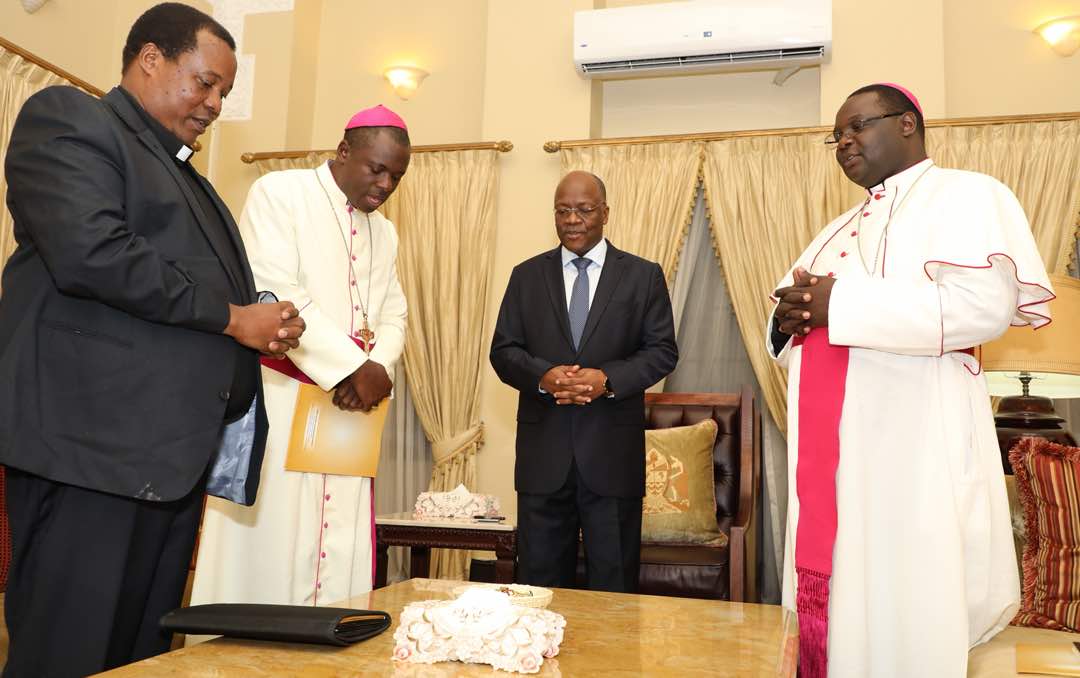
On August 7 2018, Tanzania Episcopal Conference (TEC) and the Tanzanian Christian Community (TCC) leaders met with President of Tanzania His Excellency John Pombe Magufuli at State House in Dar es Salaam upon their request to discuss with the Head of State issues of national interest. Among the leaders was the Chairman of TCC Archbishop Anikilisa Cheyo, and Chairman of TEC Bishop Bishop Gervas Nyaisonga and co-president of TEC Bishop Flavian Kassala.
Speaking on behalf of the Christian leaders and TEC, the co-president of TEC Bishop Flavian Kassala, said that it was an opportunity for the Christian leaders to introduce themselves to President Magufuli and to thank him for his commitment to develop Tanzania, but also to demonstrate their commitment to continue building on the good relations between government and the Church.
At the meeting, Bishop Kassala congratulated the President for his patriotism and strong desire to bring sustainable development to Tanzanians, in a very special way reflected on Government projects such as road construction, road transport and service buildings. “We congratulate the President for promoting and maintaining discipline in public service; the fight against corruption and theft of public property. As you know, President Magufuli has been in the forefront of fighting for proper management of national resources for the common good and for the benefit of all Tanzanians,” explained Bishop Kassala.
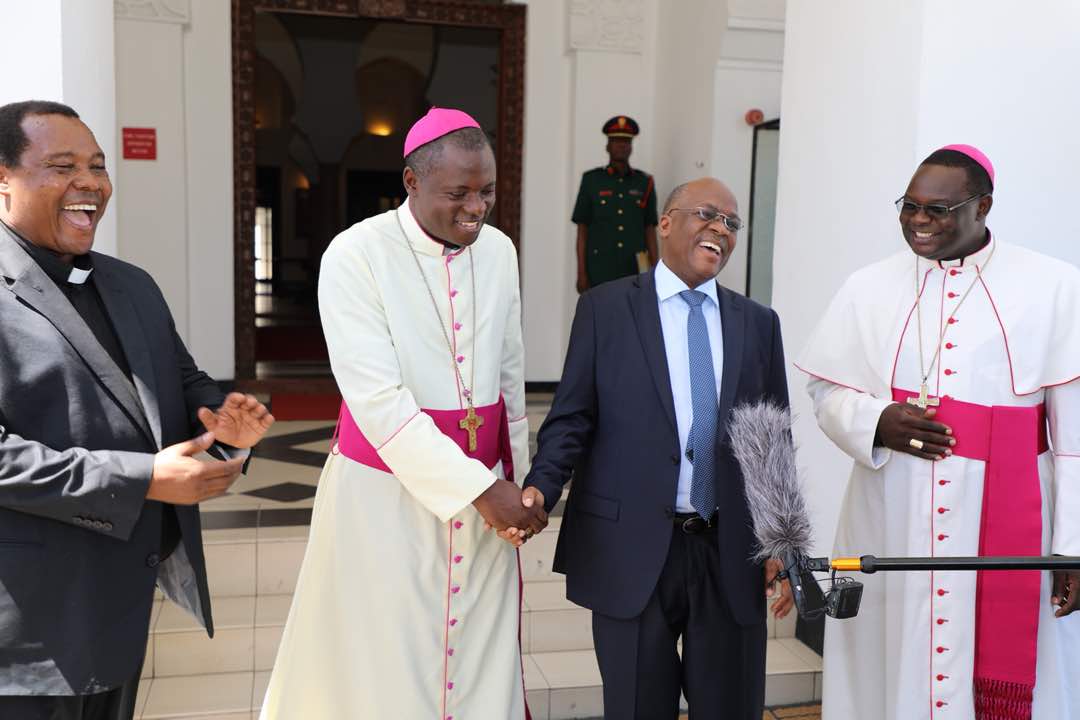 The Christian leaders appreciate the Government for providing free education to primary and secondary schools, which provides opportunities for many children to gain education, ready to deal with the situation and their environment.
The Christian leaders appreciate the Government for providing free education to primary and secondary schools, which provides opportunities for many children to gain education, ready to deal with the situation and their environment.
They congratulate the Government for major improvements in health care and social welfare, saying that President Magufuli’s Government has continued to stand firm in resolving land disputes, which was a major national disaster. “It should be noted that the land is the capital of the poor, which can help many Tanzanians to have the security of their lives, investing in agriculture and housing.
However, Archbishop Kassala said that TEC has presented to Government a suggestion to create a platform for dialogue and transparency in terms of education, health and social welfare, which in fact have been the mainstream of the Church. “Before Government has made any decisions that may have a bearing on the social services that the Church provides, it is important to have a platform for discussion and a culture of debate, so as to assess the challenges and success of some policies and strategies,” he said
He argued that the goal is to enable the Church to provide the best care and attention to God’s family in Tanzania. Where there is an agreement on all sides involved, its implementation will certainly be very effective.“Good relationship between the Government and the Church is necessary in social services, particularly health, education and social welfare. Today the Church celebrates the 150th anniversary of the formal education system established in Bagamoyo with the Spiritan Missionaries. Its fruits appeared a hundred years later for Catholic schools provided for patriotism, self-sacrificing citizenry, social welfare and the development of many Tanzanians! Among the models that we have is Julius Kambarage Nyerere.”
 Bishop Kassala described the mood of the meeting as tranquil saying that they both aimed at continued social development and benefiting the people. The Christian leaders used the opportunity to negotiate with Government and to eradicate any suspicion or doubt that may have emerged.
Bishop Kassala described the mood of the meeting as tranquil saying that they both aimed at continued social development and benefiting the people. The Christian leaders used the opportunity to negotiate with Government and to eradicate any suspicion or doubt that may have emerged.
On his part, President Magufuli thanked and congratulated the Bishops and urged them to build and maintain this culture of meeting and discussing issues in truth and transparency.
“It is not easy to lead people. To bring forth a successful nation, needs the Tanzanians’ prayers, so that I may always put God first in my life and in my decisions,’ he said.
The President of Tanzania pledged continued collaboration with churches in the provision and improvement of social services by providing subsidies in line with the Public Private Partnership (PPP), the Central Relationship Agreement for Public, and Private Institutions.
